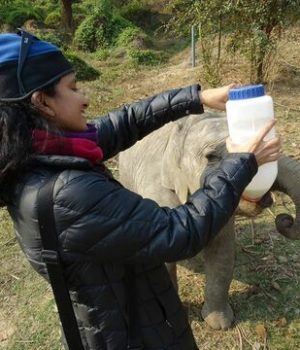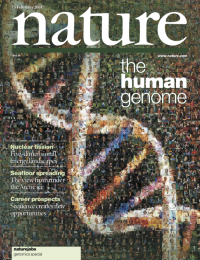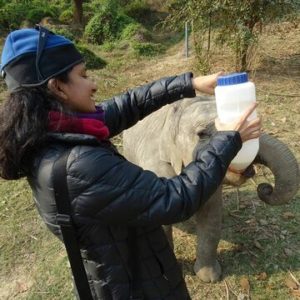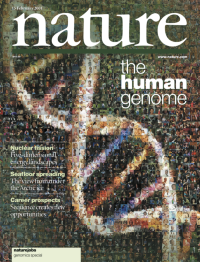About
I am a graduate of the science journalism program from Boston University.
I send in story ideas or “pitch” editors and write on commission once they give me the go-ahead. (Sending in the entire story only worked for this character from Malgudi, created by R.K. Narayan, “The Universal Correspondent.” )
In the same week, I could be interviewing a MacArthur Genius about gravitational waves, researching why asafetida fell out of favor in Europe, or getting a sneak preview of a science-based art installation in Cambridge. I am also a correspondent for the careers section of Science.
There are many, many paths to science journalism. Here is mine:
I studied at the Indian Institute of Technology (IIT), Madras, a sylvan campus with banyan tree-lined avenues. The wildlife here made for an everyday safari if one had the eyes to see it. At the Massachusetts Institute of Technology (MIT), I was part of the finishing team on the Human Genome Project. (A quick roundup on what has been achieved thus far thanks to the mapping of the genome.)
Being part of a big science project was exciting, but analyzing strings of A, C, G and T all day — the four letters represent the nucleotides that constitute the DNA — could, and did, get mind-numbingly boring. Surely, there was more to the alphabet! I signed up for an evening writing class at MIT. Soon, I enrolled in the graduate program for Science Journalism at Boston University.
These days, I write for a general audience. You will find my work online, or in magazines and newspapers you can buy at the news stand. The peer-reviewed publications, such as the ones in Nature, are a souvenir from my lab days.
It is a good life! Most of the time, at least. Let’s not get carried away here…


I am a graduate of the science journalism program from Boston University.
I send in story ideas or “pitch” editors and write on commission once they give me the go-ahead. (Sending in the entire story only worked for this R.K. Narayan character “The Universal Correspondent.” )
In the same week, I could be interviewing a MacArthur Genius about gravitational waves, researching why asafetida fell out of favor in Europe, or getting a sneak preview of a science-based art installation in Cambridge. I am also a correspondent for the careers section of Science.
There are many, many paths to science journalism. Here is mine:
I studied at the Indian Institute of Technology (IIT), Madras, a sylvan campus with banyan tree-lined avenues, the wildlife here make for an everyday safari if one has the eyes to see it. At the Massachusetts Institute of Technology (MIT), I was part of the finishing team on the Human Genome Project. ( A quick roundup on what has been achieved thus far thanks to the mapping of the genome. ) Publications peer-reviewed journals are a souvenir from my lab days.
Being part of a big science project was exciting, but analyzing strings of A, C, G and T all day — the four letters represent the nucleotides that constitute the DNA — could, and did, get mind-numbingly boring. Surely, there was more to the alphabet! I signed up for an evening writing class at MIT. Soon, I enrolled in the graduate program for Science Journalism at Boston University.
These days, I write for a general audience and you’ll find my work online, or in magazines and newspapers you can buy at the news stand.
It is a good life! (Most of the time anyway. Let’s not get carried away here… )

